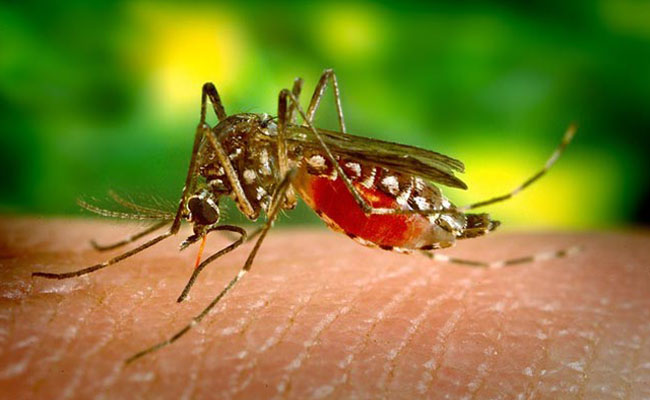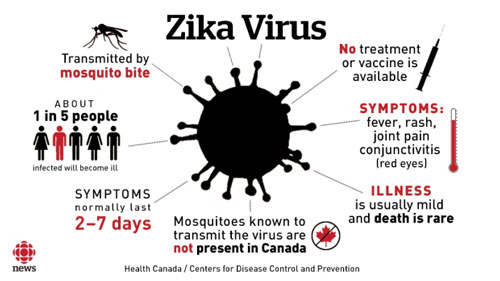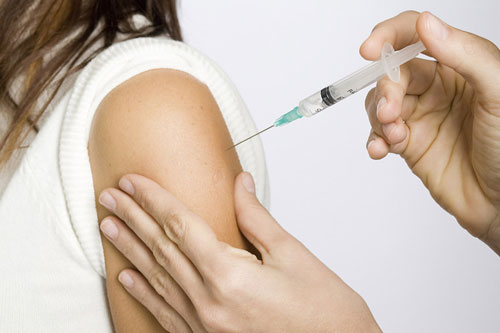Whether you’re traveling to Thailand for vacation, or you live here full time, there’s no doubt that you want to avoid contracting a tropical disease.
When people think about mosquito-borne illnesses in Thailand, malaria often comes to mind. Some travelers take antimalarial tablets as a precaution, while others simply exercise caution in high-risk areas. However, there's another mosquito-borne disease that many people overlook – Dengue Fever.
Dengue Fever is a viral infection transmitted by mosquitoes, particularly the Aedes aegypti species. It can cause severe flu-like symptoms and, in some cases, lead to serious complications. A bout of dengue can quickly turn a dream holiday into a nightmare.
To help you stay safe and informed, I've created a comprehensive guide covering everything you need to know about Dengue Fever: risks, symptoms, prevention, recovery, and more.

1. What is Dengue Fever & what causes it?
Dengue (pronounced den-gee) fever is a viral infection caused by four different strains of the dengue virus (DENV-1, DENV-2, DENV-3, and DENV-4), all of which belong to the Flaviviridae family.
The virus is transmitted to humans through the bite of infected female Aedes aegypti and Aedes albopictus mosquitoes.
It’s important to note that these mosquito species are active both indoors and outdoors, thrive in shallow, stagnant water (such as puddles, ponds, containers, and water tanks), and are most likely to bite during the early morning and late afternoon hours (dawn and dusk).
Dengue is present in over 100 countries, primarily in tropical and subtropical regions, and causes an estimated 100–400 million infections annually, with around 100 million cases showing clinical symptoms.
Outbreaks tend to occur seasonally, following the breeding patterns of mosquitoes, and dengue is one of the most common illnesses affecting travelers to warm, humid climates (source).
2. Where is Dengue Fever found?
Dengue is not commonly found in most European and North American countries. It is primarily found in tropical and subtropical regions, including Southeast Asia, the Caribbean, the Indian subcontinent, South and Central America, Africa, the Pacific Islands, and parts of Australia. While outbreaks are rare, cases have been reported in regions such as Florida, Texas, and southern Europe due to imported infections and the presence of Aedes mosquitoes.
Thailand's warm climate and numerous areas of stagnant water create ideal breeding conditions for Aedes mosquitoes, making dengue a persistent risk in the country. The risk tends to increase during the rainy season, so visitors should take extra precautions during peak periods.
3. Where is Dengue most common in Thailand?
Dengue fever is endemic throughout Thailand, presenting a risk in both urban and rural areas. Notably, the northeastern region has been identified as having an increased risk, with areas along the southern coast also experiencing significant outbreaks in recent years.
In 2023, Thailand experienced a substantial surge in dengue cases, with reports indicating an increase of over 300%, rising from 46,678 cases in 2022 to 136,655 cases by November 22, 2023 (source).
This trend continued into 2024, with 105,206 cases and 90 deaths reported by December 29, 2024 (source).
Given these trends, it's crucial for travelers and residents alike to exercise caution, especially during peak transmission periods, and to implement preventive measures against mosquito bites.
4. When is the best time to visit Thailand to avoid Dengue?
Dengue fever transmission in Thailand is heavily influenced by the climate and mosquito breeding cycles. The primary carriers of the virus, Aedes aegypti and Aedes albopictus mosquitoes, are most active during the rainy season when stagnant water provides optimal breeding grounds.
Peak Dengue Season
The rainy season in Thailand typically runs from May to October, with the highest number of cases reported between June and September. During these months, the combination of frequent rainfall and warm temperatures creates the perfect environment for mosquito breeding, significantly increasing the risk of dengue transmission.
While outbreaks can occur year-round, the wet season sees the most cases due to the surge in mosquito populations.
Best time to visit to avoid Dengue
To reduce the risk of dengue fever, it's advisable to visit Thailand during the dry season, which lasts from November to April. During these months, the cooler, drier weather means fewer mosquitoes are active, and the chances of encountering an infected mosquito are lower.
The dry season also tends to coincide with popular tourist periods, as the weather is more pleasant for outdoor activities and sightseeing.
5. What are the symptoms of Dengue Fever?
There are three different types of dengue fever that vary in severity: uncomplicated dengue fever, dengue hemorrhagic fever (DHF), and dengue shock syndrome (DSS).
Most people who contract the disease from an infected mosquito bite suffer from uncomplicated dengue fever, and may notice symptoms 4 to 10 days after becoming infected.
These symptoms may include: high fever (which can reach 40°C/104°F or even higher), pain behind the eyes, extreme muscle and joint pain, severe headaches, stomach upset or nausea, loss of appetite, weight loss, fatigue, and a red skin rash.
In severe (and rare) cases, the infection can progress to a more serious form of dengue, such as dengue hemorrhagic fever or dengue shock syndrome.
6. How long does it take to recover?
If the infection is mild, symptoms typically begin 4 to 10 days after infection and can last for up to 10 days, though they generally start to clear up after about a week. However, the after-effects of the disease may leave you feeling tired and unwell for up to two weeks.
There is no specific treatment for dengue fever; most doctors recommend resting and treating the symptoms until the infection runs its course. The NHS recommends taking paracetamol (but avoiding aspirin and ibuprofen) to alleviate pain and discomfort from fever, adequately hydrating to prevent dehydration, and getting plenty of rest.
7. Can you die of Dengue Fever?
In very rare cases (approximately 1-2%), a dengue infection can progress to ‘severe dengue,' which can sometimes be fatal.
8. Is there a Dengue Fever vaccine?
In 2016, scientists developed a fairly effective vaccine for dengue, which became available in several Southeast Asian countries, including the Philippines, Indonesia, and Singapore, as well as in Central and South American countries such as Mexico, El Salvador, Costa Rica, Brazil, and Paraguay.
However, the issue is that the vaccine requires three doses and costs approximately $207 USD.
Last year, the drug’s manufacturers cautioned that the vaccine should only be used in individuals who have previously contracted a dengue infection, as it may worsen the severity of subsequent infections.
Still, the vaccine — which is a combination of the yellow fever virus and the four strains of dengue — has been found to be about 60% effective. Researchers continue to work on developing an ideal dengue vaccine that is cost-effective, easy to ship, and safe.
9. Can you get Dengue Fever twice?
Contracting dengue only makes you immune to one variant of the virus. Because dengue has four different strains, it’s possible to become infected again.
Health professionals warn that contracting dengue a second time may lead to a more severe infection with worse symptoms, as well as an increased risk of contracting Dengue Hemorrhagic Fever (DHF).
10. Is Dengue Fever contagious?
The virus cannot be spread directly from person to person through casual contact or airborne transmission.
The mosquito becomes infected when it bites a person who already has dengue, and the virus then circulates in the mosquito’s body. When the mosquito bites another person, it can transmit the virus.
Humans as the host: The virus circulates in the human’s bloodstream and can be passed to a mosquito when it bites the person.
Mosquitoes as vectors: The infected mosquito can then transmit the virus to another human by biting them. This is how dengue spreads, with mosquitoes acting as the intermediary, but the virus itself originates and circulates in humans.
So, while mosquitoes are the vector for spreading the virus, the source of infection is the human host.
11. Can Dengue be spread through sex?
Contrary to popular belief, new evidence suggests that dengue fever can potentially be spread through sexual contact.
In one case, an Italian man was found to have the virus present in his semen a month after he contracted the infection in Thailand. The virus had cleared from his blood and urine after 23 days, but it remained in his semen for 37 days.
This highlights the possibility that dengue could be sexually transmitted, though researchers have acknowledged that further studies are needed to confirm this theory.
12. What is Severe Dengue?
In rare cases, dengue infections and symptoms can worsen, progressing to what health professionals call ‘severe dengue.'
Those who have been previously infected are at a higher risk of contracting severe dengue (although it is quite rare for travelers to develop this condition).
Signs of severe dengue include severe abdominal pain, a swollen abdomen, frequent vomiting (including vomiting blood), bleeding gums, cold and damp skin, a shallow and rapid pulse, difficulty breathing, and drowsiness or unconsciousness due to inflammation of the brain.
While it is uncommon for travelers to contract severe dengue, it is most often seen in babies and young children. The virus tends to affect females with a higher body mass index and can be life-threatening for those with chronic diseases such as diabetes or asthma.
13. What is Dengue Hemorrhagic Fever (DHF)?
In very rare cases, dengue can develop into Dengue Hemorrhagic Fever (DHF), which results in bleeding, blood plasma leakage, low levels of blood platelets, and extremely low blood pressure.
Like other forms of dengue, there is no specific and widely available medication for DHF. However, if caught early, DHF can be treated in a hospital with fluid replacement therapy.
14. How common is Dengue in Thailand?
Dengue is becoming increasingly common in Thailand, though travelers are unlikely to contract it if they follow health officials' warnings and take appropriate precautions.
5 Tips for Reducing Risk of Dengue
1. Always wear a good insect repellent (look for one that contains Picaridin, DEET, or Lemon Eucalyptus oil).
2. Wear loose, light-colored clothing that covers your limbs and neck. You can also treat clothing with insect repellent for extra protection.
3. Secure windows and doors and check for holes in screens to prevent mosquitoes from entering.
4. Clear away stagnant water sources, such as vases, animal watering containers, or water storage barrels, as these are breeding grounds for mosquitoes.
5. Consider sleeping under mosquito nets, especially if you're staying in areas with high mosquito activity.
6. Avoid outdoor activities during peak mosquito activity times, typically early morning and late afternoon to evening.
7. Use air conditioning or fans to reduce the chances of mosquitoes entering your living space.
For more information on dengue outbreaks in Thailand, you can refer to these helpful sources: Center for Disease Control and Outbreak News Today.
Tips to Start Planning Your Trip Now:
Don’t Forget Travel Insurance!
Travel insurance protects you against illness like Dengue, theft, cancellations, and more. I never travel without it. I’ve been using SafetyWing for years.
Get Expat Health Insurance:
If you are an expat, or planning to be one, you will need healthy insurance. Start with a quick quote here from Cigna. Then compare it to other companies.
Book Your Accommodation
Best hotel rates for Thailand are found here at Agoda
Last Updated on



Mark says
As my wife is Thai, and we'll be moving back to there in early December, I'll get the dengue vaccine if it's available for me. A second strain could be, as you write, dangerous.
Mar 29, 2025 at 9:15 am
TheThailandLife says
Mar 31, 2025 at 4:32 pm
James E says
Aug 07, 2020 at 9:49 pm
TheThailandLife says
Aug 07, 2020 at 10:17 pm